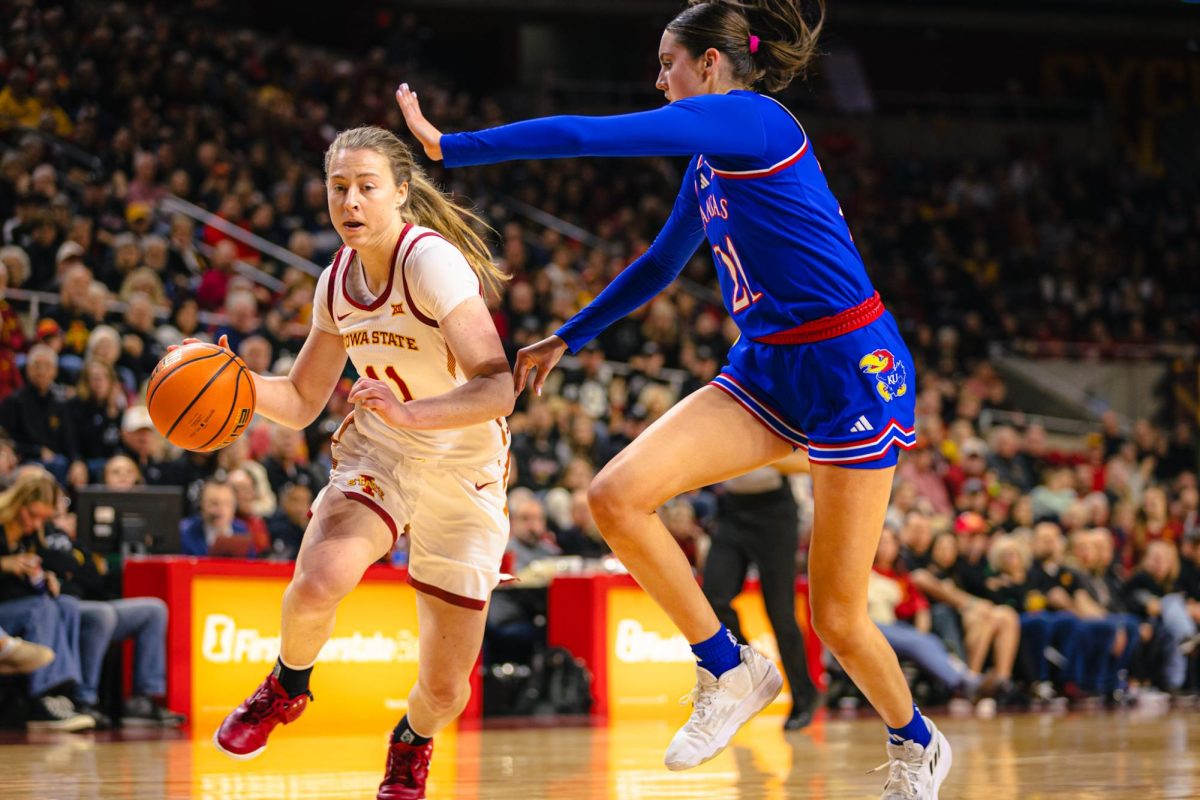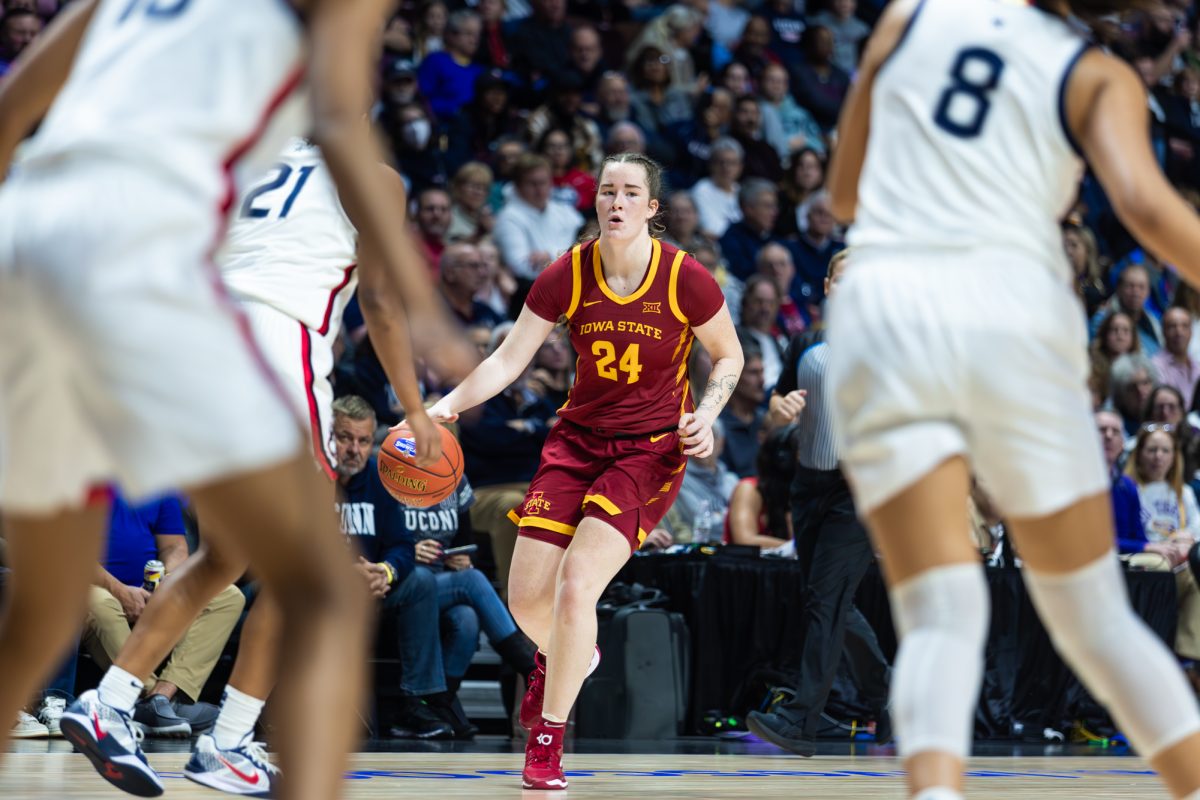Researchers work toward sustainable organic vegetables
February 21, 2011
ISU researchers are working for the future in a way that has not been done before in Iowa.
Little research on the sustainability of organic vegetables has been conducted in Iowa; however, there is an ongoing study funded by the Leopold Center for Sustainable Agriculture to examine the effects on soil, nutrition, water and the economic value of different systems.
The experiment uses two separate pairs of crops in sequence planted in spring and fall. Onions and tomatoes in the spring shift to beans and lettuce in the fall. Additionally, various combinations of methods are used, including cover crops, composted animal manure, tilling and mulching.
Cover crops are crops grown on the plot after harvest to prevent soil loss over the winter and before spring planting. The two used in the study are winter rye and hairy vetch which are grown together. Before spring planting, a roller is used to kill the cover crop, which is replaced by the desired crop. The study also left the remains of the cover crop in some plots to block the growth of weeds and prevent soil erosion.
“You’re hopefully preventing soil erosion in two ways,” said Dan Cwach, graduate in agronomy. “One is throughout the winter, something will be on the soil holding it together, and in the spring you’re not tilling as much, so you don’t have to rip up the soil.”
Cwach said the desired crops are allowed to grow because a small patch will be cleared around them when they’re planted.
“If you’re planting a vegetable crop, you would use a trans-planter, or do it by hand, put little spaces around it so hopefully the plant grows up and shades out the soil around it,” Cwach said. “It sounds a lot easier than it is.”
Kathleen Delate, professor of horticulture, said hairy vetch may also have the additional benefit of attracting the predators of insects that feed on agricultural crops.
“There’s data showing that the flowers of the hairy vetch can attract beneficial insects, like little parasitic wasps that attack caterpillars, so we’ll be monitoring for that,” Delate said. “What we’ve found is that beneficial insects control insects as much as pesticides.”
The concept of using cover crops to attract predatory insects is similar to planting milkweed to attract monarch butterflies.
Composted animal manure is a combination of straw and manure mixed together and spread across the field as fertilizer.
Delate said the study used straw mulch instead of plastic mulch because most of Iowa’s organic farmers use straw mulch. After planting, mulch is used to cover the field, prohibiting other plants from growing. Mulch can also be placed down before planting and gaps can be made within it to allow the desired crop to grow.
Delate said farmers play an important role in deciding research.
“All our projects are based on farmer input,” she said. “We’ll sit down with the farmers and ask them what kind of research they want. Their number one and two research needs revolve around weed management and soil fertility.”
Delate said she believes her study and similar research are preparing for the future.
“Most people accept the philosophy that we’re at ‘peak oil’ and we’re not going to get any more oil reserves out there,” Delate said. “Organic is based on no-petroleum based inputs. So we’re definitely preparing for a future where there will be minimal to no petroleum.”





